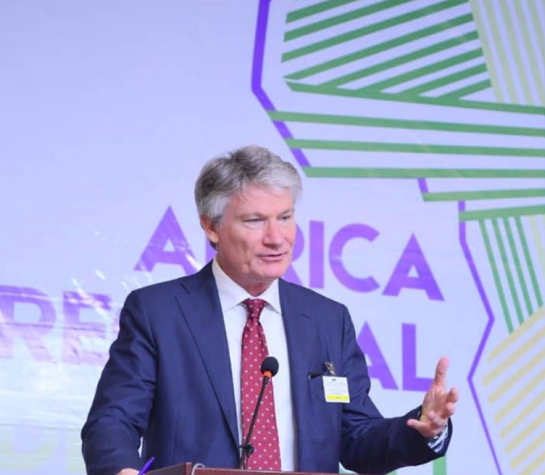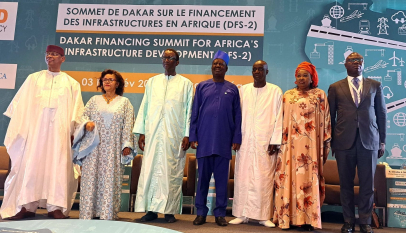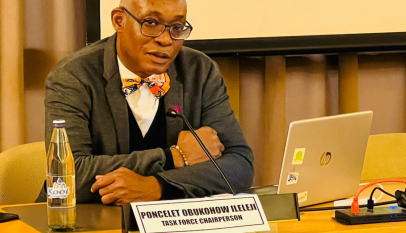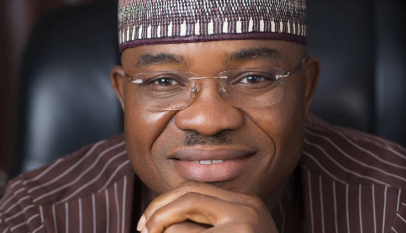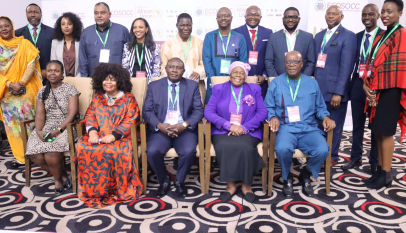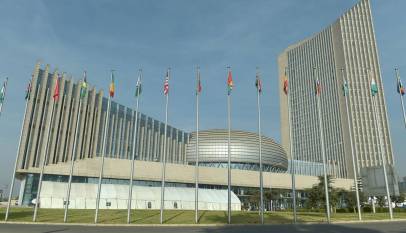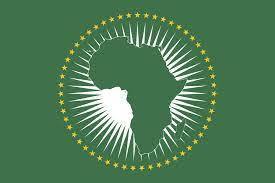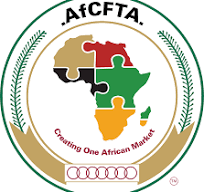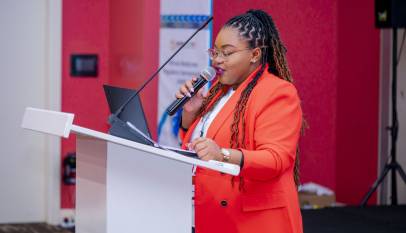EXCLUSIVE | How Africa can achieve more balanced relations with the European Union – Ranieri Sabatucci
Ambassador Ranieri Sabatucci, the European Union’s (EU) ambassador to the African Union (AU), shares his views on amongst others, how Africa can achieve a more balanced partnership with the European Union, the Africa Continental Free Trade Agreement (AfCFTA), and COVID-19.

The 10th African Union Commission (AUC) – European Commission (EC) meeting held last February in Addis Ababa, Ethiopia, had in attendance the largest ever EC delegation in any meeting outside of the EU. What message was the EC trying to send with such a large delegation comprising of 21 commissioners?
This was a political message and a strong signal about the EU putting Africa at the top of its agenda. Africa is our closest neighbor. We share a past that has many problematic parts, but we are determined to transform this into a common future that will be shaped according to the joint interests of the people on our two continents. The unprecedented attendance was clear evidence of our wish to lift our relationship to the highest level.
In terms of content, if you look at the outcome, you will see that the meeting was very dense and comprehensive. It encompassed peace and security, support to the AfCFTA, [green development and digitalisation] as its main agenda items, complemented by topics such as the Programme for Infrastructure Development in Africa (PIDA), education, research etc.
You know that Europe has committed itself to becoming the first carbon neutral continent in the world by 2050; doing this will require immense efforts in transforming our carbon based economies into non-carbon based ones. We think that in this endeavor, Africa actually has an advantage over us, it has less carbon-based industries that need to be transformed.
So, in a way, Africa can skip the carbon-based industrialization process and focus immediately on a new, non-carbon based model of industrialization, a point stressed by EC President Ursula von der Leyen during the joint deliberations. We are therefore interested in working with Africa to jointly develop such a model, jointly invest in such non-carbon based industrialization and develop the technologies needed for this.
Therefore, the European Commission used the meeting of the two Commissions to promote two of its main priorities that are as relevant for Europe as they are globally, namely the Green Deal and digitalization. We expect that our common agenda will now also be expanded in these two areas.
Working together with Africa will also give us the opportunity to influence the multilateral agenda on these two priorities, which is particularly important in the present time when the multilateral system is being challenged. Since together with Africa we have 81 votes at the United Nations General Assembly, we have an obligation as EU and AU to be more effective in promoting the multilateral agenda.
The EU is one of Africa’s major development partners across many key areas such as peace and security as well as economic integration, particularly the establishment of the AfCFTA. What opportunities for enhanced EU-AU cooperation does the AfCFTA provide?
Since the beginning of the process of establishing the AfCFTA, the EU has been the most enthusiastic and committed partner of the AU. This is because of all partners, the EU is the one that is most aware of the benefits of a common market. .
Our support began with funding impact studies, awareness promotion programmes as well as measures that facilitated the ratification of the AfCFTA by AU Member States, e.g. conferences and workshops with members of civil society and the business community. We are now supporting the establishment of the African Union Trade Observatory which will provide data and statistics for the monitoring of continental trade in order to allow evidence-based policy-making.
An example of where our experience with creating a single market can be of use for the AfCFTA is the issue of quality standards; for example, food imports from one country to another. For this to be possible without obstacles, it must be guaranteed both that the imported food is actually safe, and that the importing country will acknowledge that it is safe. To provide these guarantees, the AU is establishing the Africa Food Safety Agency. We are facilitating a partnership between this Agency and
the EU’s food safety agency to draw on Europe’s experience with these matters. We furthermore want to support Africa in the creation of a single digital market which is also very important.
The progress of the AfCFTA will provide the most powerful boost to Africa’s development. This is in the EU’s interest, also it will provide significant opportunities for EU companies to invest in Africa. In the long run, the possibilities of integrating the European and African continental markets will significantly increase job creation and investment opportunities on both sides of the Mediterranean Sea.
Based on the European experience of a single market, what key pitfalls do you think Africa must avoid as it prepares to begin trade under the AfCFTA?
First, the importance of communication must be recognized. The establishment of the single market has benefited Europe immensely, and the successful economic development has consequently allowed Europe to set up one of the best welfare systems in the world. But we have not been able to effectively communicate these benefits to the citizens of Europe.
Instead, what we have seen is politicians or political leaders talking about the failures of the single market and putting the blame for the failures on others, which is always easier than to develop positive solutions. Thus, Brussels has become a scapegoat for political leaders in the EU Member States who are facing difficulties with their constituency at home. This is clearly harmful, and the lesson to be drawn is that political leaders should always underscore the achievements of the integration process to the people.
Second, solidarity is needed. Essentially, in a single market, there will be countries and sectors that will do better than others at different times even though in general, the cake will get bigger with time. Therefore, an integration process that is not built on solidarity doesn’t and will never work – it will collapse!
This is the challenge we face in Europe today. And the question we are asking ourselves is are we expressing enough solidarity with one another?
So, it should be understood that not all countries will do very well at all times in a single market; and those that do not do very well at any point of time shouldn’t be left behind. Everyone need some sort of support, so countries that are gaining more from the integration process must be able to support those that are gaining less. I think this is also a good lesson for the integration process in Africa.
The 6th EU-AU summit is scheduled for October 2020. What opportunities does the summit present in terms of advancing EU-AU cooperation in, among others, the areas of investment and trade, climate change as well as digital economy?
Before COVID-19, the idea was for the summit to have strengthened our relationship across the various areas of our partnership, particularly in the area of [job creation and] investment. At the moment, we are in the middle of a global crisis which has already affected Europe very much and will most likely also hit Africa hard.
Therefore, we will need to develop a good common understanding of the implication of this crisis and what needs to be done to recover from it. What we clearly understand already now is that the recovery will require a cooperative approach by the entire world. This is the time to work together and not the time for my country or my continent first.
The agenda of our upcoming Summit should therefore be focused on how we are going to work together to speed up the recovery which will be very hard; it will be the hardest we will ever see in our lifetime and in our recent history. The need to commit to joint efforts and cooperation makes it very important to have the Summit this year.
2020 has been described as a pivotal year in EU-Africa relations with the EC President saying she wanted a “move towards a partnership of equals beyond the donor-recipient relationship.” How are you planning to make the EC’s vision a reality?
In terms of relationship, I have to confess that I am not a fan of the use of the expression ‘equal partnership’. I think they use it in Europe because they think Africa likes it. This is a term that we don’t use in other partnerships and I don’t see why it should be used when referring to the partnership between Africa and Europe. In reality, equal partnerships are based on the definition of mutual interests; what we need to have is a precise understanding of our common interests.
Africa and Europe should have a great overlap of common interests, more than either of us has with other parts of the world because we are next to each other, geographically. If we cough, Africa sneezes and vice versa. So, there is a strong link between Africa and Europe and we have the means and interest to make the most out of it. We are the only two Unions that represent a continental integration process; it shows that we see international relations in very similar ways.
While Europe is busy thinking of what its interests are in dealing with Africa, the question remains: is Africa also thinking of what exactly they want out of their relationship with Europe? If Africans do not have a clear idea of what they want from Europe, it is very difficult to have a so called equal relationship. If you go into a shop without knowing exactly what you want to buy, you are going to end up buying what the guy in the shop tells you to buy. So, I think Africa should have a strategy for engagement with Europe, just as Europe has a strategy for engaging with Africa.
When we hold Summits with China, we talk about what investments the Chinese want to do in Europe and not just about what investments Europe wants to do in China. We should get away from only contemplating how Europe should invest in Africa, and rather also think about how Africa can invest in Europe. Thus, what is most important is not only determining openly and transparently what Europe wants from Africa, but equally what Africa wants from Europe. What we need to ensure is that ours is a partnership based on addressing shared interests and one with concrete outcomes.
In Europe, we are in the process of elaborating our strategy on Africa. It would also be useful to see an African strategy on Europe that would explain how Africa sees its relationship with Europe and also what Africa and Europe could do together to promote tangible progress on the global agenda. The COVID-19 pandemic sadly reminds us that a lot of what affects us cannot be addressed by us alone; but Africa and Europe have the opportunity to promote a different and more effective global agenda.
Editor’s note: This interview has been edited for length and clarity.

